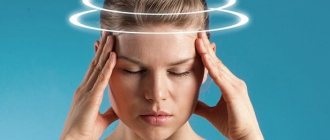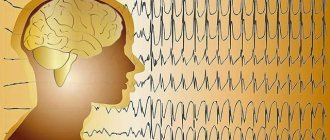Read what are the causes of dizziness in women.
- People suffering from hypotension (low blood pressure). They simply don't have enough vitality.
- Diabetics.
- Aged people. Everyone knows that with age the body begins to function worse. Hence the decreased performance, constant fatigue, shortness of breath and other symptoms. Older people want to sleep, but they often experience insomnia.
- Office employees. Lack of movement is to blame here.
- People who deliberately refuse proper nutrition. A lack of essential vitamins and minerals leads to drowsiness, increased fatigue, dizziness, and shortness of breath.
During a visit to the doctor, you must tell him about your occupation, describe your daily routine, character and diet. In addition, we must not forget about chronic pathologies that constantly bother us, as well as about the medications that we have to take.
In what cases is weakness not a pathology?
In principle, if a person develops weakness in the body, which is accompanied by dizziness, then this in itself may not be associated with any pathology. Most often, the cause of the development of this condition is moral exhaustion of the body or physical fatigue. This is why you feel dizzy more often at the end of the day. However, after a short rest, the malaise and weakness disappear. However, if fatigue is severe, then it may take the whole night to restore the functionality of the body.
The presented condition is also typical for those people who are recovering from certain diseases: ARVI or other infectious pathologies. The fact is that the body spends enormous energy fighting the disease; it needs some time to recover, for example, 2 weeks.
However, if dizziness and weakness continue for more than 14 days, and are also additionally accompanied by symptoms such as shortness of breath, increased fatigue, decreased activity, constant malaise, lethargy, drowsiness, often no appetite, and also numb hands, then you should definitely consult a doctor, after why undergo a thorough examination.
Recommendations
have a snack with light yogurt, drink green tea with a drop of honey; if you are aware of the presence of seasickness, before any trip, take a special modern remedy in advance to prevent the appearance of unpleasant symptoms: dizziness, nausea, severe weakness, vomiting; if there is congenital weakness of the neck structures, try not to load them - facilitate fitness or yoga exercises in the neck area;
adjust the work and rest schedule - take short breaks every 35-45 minutes during the work shift; ensure quality night's rest - purchase an orthopedic mattress and sleep only on it; give your eyes a rest if your work involves sitting in front of a computer screen or reading a lot of documents.
If, despite following the above recommendations, discomfort persists, it is recommended to undergo a comprehensive diagnostic examination, based on the results of which a specialist will individually decide why the person is constantly dizzy, what to do, and what treatment measures will be necessary.
If you experience symptoms of fatigue, dizziness and drowsiness, you should not self-medicate; perhaps these symptoms are a manifestation of a serious illness. Contact your doctor, who will conduct a series of special studies, differential diagnosis and determine the exact cause of these symptoms, and therefore prescribe correct and adequate treatment. Take good care of your body and be healthy!
10 Drugs to improve memory 66 Margo 10/12/2017 5:28 pm Laser vision correction: types of operations, complications 40 Alexandra Viktorovna 10/9/2017 5:59 pm How to restore your sense of smell after an injury 10/14/10/2017 07:18 I cut off a piece of my finger, what should I do? 68 Pasha08.10.2017 19:08 Allergic swelling of the eyes - how to relieve? 24 Elena08.10.2017 15:
53 Scar from a dog bite 12 Vaa03.10.2017 22:44 If anyone is looking for a good dermatologist, I highly recommend Irina Anatolyevna Nechaeva! 2 Katrin03.10.2017 22:18 A leg bruise does not go away 29 Marina03.10.2017 07:17 How much garlic can you eat every day 22 Lyudmila02.10.2017 17:03 Is it worth treating deep caries 44 Natalia01.10.2017 21:
- if you feel dizzy after psycho-emotional stress, it is recommended to lie down and rest, for example, in a darkened room with a cool compress on your head;
- if unpleasant sensations are caused by an overly strict diet - headaches and dizziness, it is necessary to compensate for the nutritional deficiency: have a snack with light yogurt, drink green tea with a drop of honey;
- if you are aware of the presence of seasickness, before any trip, take a special modern remedy in advance to prevent the appearance of unpleasant symptoms: dizziness, nausea, severe weakness, vomiting;
- if there is congenital weakness of the neck structures, try not to load them - facilitate fitness or yoga exercises in the neck area;
- adjust the work and rest schedule - take short breaks every 35-45 minutes during the work shift;
- ensure quality night's rest - purchase an orthopedic mattress and sleep only on it;
- give your eyes a rest if your work involves sitting in front of a computer screen or reading a lot of documents.
Who is most susceptible to this condition?
There are certain populations that are most at risk for dizziness, weakness, and drowsiness. At the same time, decreased performance, shortness of breath and other symptoms appear not only in women, but also in men. The risk group includes:
- Adolescents during puberty. The fact is that at this age the child’s hormonal levels completely change. This can lead to the following symptoms: poor health, loss of strength, the child constantly wants to sleep, he can become irritable, sometimes even aggressive.
- Women with menstrual bleeding. During this period, the head is often dizzy, increased fatigue, decreased performance, and frequent malaise appear.
- Women during menopause. Here the feeling of fatigue and drowsiness may be constantly present. The problem is that women during this period lack some hormones that previously regulated the body’s vital functions.
- Pregnant women.
They often feel increased fatigue, and they also feel dizzy quite often. Women waiting for a new addition to their family are often prone to dizziness and weakness
- People suffering from hypotension (low blood pressure). They simply don't have enough vitality.
- Diabetics.
- Aged people. Everyone knows that with age the body begins to function worse. Hence the decreased performance, constant fatigue, shortness of breath and other symptoms. Older people want to sleep, but they often experience insomnia.
- Office employees. Lack of movement is to blame here.
- People who deliberately refuse proper nutrition. A lack of essential vitamins and minerals leads to drowsiness, increased fatigue, dizziness, and shortness of breath.
During a visit to the doctor, you must tell him about your occupation, describe your daily routine, character and diet. In addition, we must not forget about chronic pathologies that constantly bother us, as well as about the medications that we have to take.
Pathological causes
In addition to the negative physiological factors listed above, a condition where there is pain and dizziness, severe weakness, or constantly want to sleep indicates the presence of a pathological focus in the body:
- If a sudden attack of significant deterioration in well-being occurs - with heavy cold sweat, nausea and vomiting, against the background of intense dizziness, fluctuations in pressure parameters - it is necessary to exclude true vertigo, pathology of the vestibular organ.
- ENT pathology such as otitis media is also common - pain impulses in the head can be combined with the feeling that one is dizzy, there is pain in the affected ear, it is impossible to sleep due to pain, there is severe weakness.
- Various intoxications, for example, alcohol, food, medications, provoke an extremely serious condition - vomiting that brings little relief, severe nausea and weakness, headache and dizziness, tachycardia, cardialgia, chills, body aches may be observed.
- If in the recent past there was a car accident or a fall from a height, it is necessary to exclude traumatic brain injury as the true root cause of dizziness and deterioration in well-being.
- An acute attack of dizziness ending in loss of consciousness may indicate the development of a pathology such as a stroke - an intracranial vascular accident. What to do in this case will be decided by specialists after delivering the victim to the inpatient setting of a specialized vascular center - in direct dependence on the nature of the pathology, the extent and localization of the pathological focus.
A specialist will be able to reliably find out why a person is bothered by dizziness and weakness only after carrying out diagnostic procedures - self-diagnosis and self-medication are absolutely prohibited.
If a sudden attack of significant deterioration in well-being occurs - with heavy cold sweat, nausea and vomiting, against the background of intense dizziness, fluctuations in pressure parameters - it is necessary to exclude true vertigo, pathology of the vestibular organ. ENT pathology such as otitis media is also common - pain impulses in the head can be combined with the feeling that one is dizzy, there is pain in the affected ear, it is impossible to sleep due to pain, there is severe weakness.
Various intoxications, for example, alcohol, food, medications, provoke an extremely serious condition - vomiting that brings little relief, severe nausea and weakness, headache and dizziness, tachycardia, cardialgia, chills, body aches may be observed. If in the recent past there was a car accident or a fall from a height, it is necessary to exclude traumatic brain injury as the true root cause of dizziness and deterioration in well-being.
An acute attack of dizziness ending in loss of consciousness may indicate the development of a pathology such as a stroke - an intracranial vascular accident. What to do in this case will be decided by specialists after delivering the victim to the inpatient setting of a specialized vascular center - in direct dependence on the nature of the pathology, the extent and localization of the pathological focus.
Causes of dizziness and weakness
So, if you feel dizzy and feel weak, the following reasons may contribute to this:
- Chronic lack of sleep. To fully restore the body's strength, a night's sleep is necessary, which lasts at least 7-8 hours. If you sleep less, the body does not have time to restore its reserves. Excess sleep (more than 10 hours) can also cause weakness and dizziness.
- Chronic stress. The body spends enormous energy to fight it. If for some reason a person cannot get out of a stressful state, then all his strength is exhausted, chronic fatigue appears, and he is constantly dizzy. In this case, performance may be reduced.
- Anemia caused by iron deficiency. In this case, the level of hemoglobin in the body decreases, and, therefore, the ability of the blood to carry oxygen. Tissue hypoxia begins. In this case, not only increased fatigue and dizziness appear. Symptoms such as shortness of breath and pale skin may also appear.
- Infectious pathologies. Almost all pathologies of this type are characterized by symptoms such as weakness and dizziness. In addition, due to intoxication of the body, the patient develops fever, shortness of breath, and decreased physical activity. In addition, weakness in the body may be the very first symptom of an incipient pathology. The first thing to do in this case is to consult a doctor.
Neurologist, associate professor Anastasia Fedotova talks about the causes of dizziness and treatment methods:
- Pathology of a neurological nature. These diseases may be accompanied by increased fatigue and dizziness. If the pathological condition is associated with a disruption of the nervous system, then the patient also constantly wants to sleep. The cause of dizziness can be meningitis, encephalitis, brain tumors, osteochondrosis. These pathologies are very dangerous to health, which is why it is so important to see a doctor in time. It is not recommended to do anything on your own; it is better to trust a specialist.
- Damage to the vestibular apparatus.
- Pathologies of the cardiovascular system: vegetative-vascular dystonia, arrhythmia. Additional symptoms may include increased fatigue and shortness of breath.
- Poor blood circulation in the brain. In addition to increased fatigue, the following symptoms may also be present: whistling in the ears, decreased concentration.
Determining the nature of vertigo
- Hypertension. In this case, there is increased fatigue, shortness of breath, vomiting, and dizziness. The fact is that with a sharp rise in pressure, the functionality of some internal organs may be disrupted.
- Cardiopsychoneurosis. Most often it affects women. That is, the head is spinning from psychological overstrain, emotional stress.
- A brain tumor. Moreover, the symptoms include not only dizziness, weakness, nausea, but also severe headache, tinnitus or decreased hearing acuity, paralysis of the facial muscles, and strabismus.
- Migraine. In this case, the patient’s blood circulation is impaired, which is why dizziness may occur, because the functioning of the vestibular apparatus worsens, and photophobia appears.
What should be done if a person develops weakness in the body and dizziness, constant fatigue, shortness of breath, or a fever? If you feel dizzy and there are other symptoms, you must first find out the cause of this pathological condition. To do this, you need to see a doctor. If we establish exactly what causes this pathological condition, it will be possible to prescribe adequate treatment.
Reasons for development
What are the reasons for dizziness and drowsiness? These can be either direct diseases of the nervous system or indirect ones.
So the reasons are as follows:
- Traumatic brain injury – in some cases you feel dizzy immediately upon injury, while in others you feel dizzy after a certain period of time. At the same time, drowsiness and nausea may occur;
- Intoxications that occur acutely (their symptoms are nausea as the most characteristic sign, weakness, a state of dizziness);
- Vascular lesions (atherosclerosis, thrombosis, etc.), in which the brain is constantly in a state of oxygen starvation;
- Hypothermia of the body;
- Depression and other mental disorders, the symptoms of which can be very diverse;
- Neurocirculatory dystonia - impaired regulation of vascular tone (in this situation, the head is most often dizzy after lack of sleep, psycho-emotional stress, stress);
- Pathological drowsiness (hypersomnia) as an independent disease associated with impaired synthesis of neurotransmitters (nausea is not very typical for this condition);
- Endocrine disorders, first of all, are hypothyroidism;
- Anemia – both chronic and acute, regardless of its cause;
- Apnea syndrome is a sudden cessation of breathing, which is especially common during sleep;
- Diabetes mellitus, which is characterized by damage to both large and small vessels.
In addition, overdoses of certain medications are also considered as causes of weakness, dizziness, drowsiness and nausea.
Therefore, before taking any medication, be sure to consult your doctor and read the instructions.
What to do if you feel dizzy and weak?
Diagnostics
In the photo, ultrasound examination of the vessels of the neck and head is one of the types of research into the causes of dizziness.
Treatment can only be effective if the real cause of the condition is established. That is, you will have to do a comprehensive comprehensive examination. It includes the following procedures:
- Laboratory tests of blood and urine to determine whether there is an inflammatory process in the body.
- Radiography. In this way, the condition of the spine, especially the cervical spine, is assessed.
- Diagnosis of vascular patency.
- MRI or CT. This study will provide an opportunity to obtain complete information about the activity of the body in general and the brain in particular. The procedure will also help to establish the cause of the development of the pathological condition.
If all the causes are established, treatment can begin. In this case, you cannot engage in amateur activities, as this is fraught with serious complications.
Treatment
It should be taken into account that a serious illness, the symptom of which is dizziness or weakness, occurs in one case out of 10. Naturally, it is necessary to treat not the symptom, but the root cause of the pathology. If it is not established, then the patient may receive a diagnosis: “chronic fatigue syndrome.”
The following methods are mainly used in treatment:
- Drug treatment is strictly according to the recommendations of the attending physician.
- Adjustment of diet and regimen. It must be enriched with all the vitamins and minerals necessary for the normal functioning of the body. This will make it possible to replenish energy costs.
- Normalization of sleep. It must be remembered that night rest should not be less than 7 and more than 9 hours.
- Distribution of rest and work schedules. Don't overwork your body. If the work is sedentary and monotonous, then you need to take periodic breaks and do physical exercises.
- It is necessary, if possible, to avoid all kinds of stressful situations and strong emotional shocks. It is necessary to provide yourself with comprehensive psychological comfort.
- Performing therapeutic physical exercises. Physical activity will activate blood circulation and metabolism in the body. We should also not forget about the healing power of fresh air. This is especially true for children and pregnant women and office employees.
- Continuous monitoring of blood pressure in patients with hypertension and hypotension. Naturally, measures need to be taken to correct the condition.
- Timely treatment of colds and other pathologies. If necessary, strict bed rest must be observed. The disease must be treated to the end.
- It is advisable to undergo a medical examination twice a year. This will make it possible to detect the presence of the disease in time and significantly reduce the duration of therapy.
- Strengthening the immune system naturally, through medication. Here you can take multivitamin complexes.
- Timely prevention of diseases of the cardiovascular system.
- You need to constantly monitor your blood sugar levels.
It should be noted that there is no single correct treatment method. Weakness, dizziness, drowsiness are not specific symptoms. They can indicate a simple malfunction of the body's functionality, or a serious pathology. Therefore, you should not guess, but it is better to consult a doctor. Only in this case can serious complications be prevented. Leave your opinion on the article or tell us and other readers how you cope with dizziness and weakness.
Weakness in the body and dizziness to one degree or another are experienced by all people from time to time. As a rule, such symptoms are short-lived, appear after physical or intellectual fatigue and disappear without a trace after rest. But there are also cases when these symptoms become chronic and do not leave the person even after a long rest. What is their cause and how to get rid of this painful condition, we will consider in detail in this article.
Other reasons
Sometimes dizziness may already be a consequence of a long-term pathological process in the patient’s body, the symptoms of which he did not pay due attention to:
- degenerative damage to the cervical elements of the spine - observed in people who are forced to remain in one position for a long period of time, for example, in office workers: compression of the vessels that deliver nutrients to the structures of the brain will manifest itself as periodic or constant dizziness;
- unnoticed development of dizziness in combination with a decrease in hearing parameters can be observed against the background of a malignant neoplasm - it is recommended to urgently consult with an oncologist;
- the migration of calcium carbonate grains in the receptors of the cochlea of the inner ear may be the answer to why a person experiences attacks of paroxysmal positional vertigo - a pathology that is very difficult to diagnose;
- weakness that does not go away even after a long rest, the feeling that you want to sleep, that your head is dizzy and hurts throughout the day - typical complaints with chronic anemia - taking a finger prick blood test will clarify the situation;
- many people experience enormous psycho-emotional stress without noticing it themselves, which leads to the formation of depressive disorders - weakness, drowsiness, increased irritability and tearfulness will indicate this neurological disease: timely consultation with a neurologist and subsequent treatment procedures allows you to stop the negative condition in the shortest possible time .
The decision on what to do should be made only by a specialist of the appropriate profile - refusal of diagnostic and therapeutic procedures greatly increases the risk of severe complications and consequences.
degenerative damage to the cervical elements of the spine - observed in people who are forced to remain in one position for a long period of time, for example, in office workers: compression of the vessels that deliver nutrients to the structures of the brain will manifest itself as periodic or constant dizziness;
unnoticed development of dizziness in combination with a decrease in hearing parameters can be observed against the background of a malignant neoplasm - it is recommended to urgently consult with an oncologist; the migration of calcium carbonate grains in the receptors of the cochlea of the inner ear may be the answer to why a person experiences attacks of paroxysmal positional vertigo - a pathology that is very difficult to diagnose;
weakness that does not go away even after a long rest, the feeling that you want to sleep, that your head is dizzy and hurts throughout the day - typical complaints with chronic anemia - taking a finger prick blood test will clarify the situation; many people experience enormous psycho-emotional stress without noticing it themselves, which leads to the formation of depressive disorders - weakness, drowsiness, increased irritability and tearfulness will indicate this neurological disease: timely consultation with a neurologist and subsequent treatment procedures allows you to stop the negative condition in the shortest possible time .
When is weakness normal?
Despite the fact that weakness in the body and dizziness are the most common complaint of patients when visiting a doctor, in most cases these symptoms are not associated with any disease, but are a consequence of physical or moral exhaustion of the body.
Feelings of weakness, slight malaise and dizziness often catch a person at the end of the working day and on the way home. But as soon as you cross the threshold of your home, have dinner, rest a little (usually 10-40 minutes is enough) and all the fatigue goes away. In some cases, you may need to rest all night.
Also, weakness and dizziness are considered normal during the recovery stage from various diseases, especially infectious ones. The duration of asthenic syndrome depends on the type of disease and the individual ability of the body to recover; it usually lasts up to 2 weeks. If the painful condition persists longer than the specified time, then you should consult a doctor for advice.
Severe mental strain and chronic stress often cause dizziness and weakness in the body
Diagnostic search
If you feel dizzy and want to sleep, weakness and nausea appear, be sure to consult a doctor for help. Depending on the specific clinical situation, the following examination methods may be prescribed:
- Polysomnography. This is a specific study that involves recording all impulses sent by the nervous system, as well as indicators of the functioning of the cardiovascular and respiratory systems.
To detect pathological drowsiness and dizziness, the patient must stay in the hospital for a day with sensors attached to the body.
This examination is resorted to in cases where it is not possible to understand why these symptoms appear;
- Pulse oximetry can also be performed at home, when parameters of the respiratory system are recorded. With the help of this study, the causes of breathing disorders (apnea) can be identified;
- General clinical blood test, which reveals a reduced level of hemoglobin (anemia);
- If you have nausea, be sure to consult a gastrologist. He may prescribe an ultrasound examination of the abdominal cavity and other diagnostic methods.
Dizziness, weakness and drowsiness require specialized treatment, which depends on the cause of this condition.
If you feel dizzy and want to sleep, then you should follow these recommendations:
- Find out your daily sleep requirement. It is optimal to do this during vacation, when sleep is not limited by the work schedule. In the future, you should constantly adhere to this rhythm;
- It is advisable to go to bed at the same hours all the time; it is also necessary to get up at the same time;
- It is necessary to rationally distribute time between rest and work;
- Walking in the fresh air is a must, especially if nausea is a concern;
- Physical activity should be optimally selected to eliminate weakness and dizziness;
- It is recommended to drink at least 2 liters of water per day;
- The diet should always contain fresh vegetables and fruits;
- It is necessary to completely stop smoking and reduce the amount of alcohol you drink, which can cause drowsiness, weakness and dizziness;
- Reduce carbohydrate intake;
- If a person is worried about weakness, drowsiness, nausea and dizziness, then the amount of coffee drunk should be kept to a minimum. This is due to the fact that coffee is a stimulant for the nervous system, increasing its need for energy and oxygen;
- It is better to replace coffee with green tea.
If you follow all these recommendations, you can significantly reduce all these unpleasant symptoms from the nervous system. There are also rules of first aid when you feel dizzy.
At this time, you must perform the following steps:
- Lie down;
- Open the windows to ventilate the room;
- Place a wet towel on your forehead;
- Rub your temples;
- Do not close your eyes under any circumstances, as dizziness and drowsiness can lead to loss of consciousness.
Thus, when you feel dizzy and want to sleep, you need to visit a doctor to find out the causes of this condition.
These symptoms can indicate a serious illness, and sometimes they can only indicate overwork.
Therefore, in order not to miss any pathology, you should consult a doctor in a timely manner. And simple rules of help will help you not to get confused when nausea, drowsiness, and also when you feel dizzy.
Do you still think that it is impossible to get rid of DIZZINESS?
Have you ever tried to get rid of dizziness? Judging by the fact that you are reading this article, you know firsthand what it is:
- frequent unpleasant sensations in the head area (pressing or throbbing pain)…
- darkening of the eyes, ringing in the ears...
- sudden feeling of weakness and fatigue, increased heart rate and sweating...
- there is nothing to say about shortness of breath after the slightest physical exertion...
Now answer the question: are you satisfied with this? Can ALL THESE SYMPTOMS be tolerated? How much time have you already wasted on ineffective treatment? After all, sooner or later the SITUATION WILL GET WORSE.
- Polysomnography. This is a specific study that involves recording all impulses sent by the nervous system, as well as indicators of the functioning of the cardiovascular and respiratory systems.
To detect pathological drowsiness and dizziness, the patient must stay in the hospital for a day with sensors attached to the body.
This examination is resorted to in cases where it is not possible to understand why these symptoms appear;
- Pulse oximetry can also be performed at home, when parameters of the respiratory system are recorded. With the help of this study, the causes of breathing disorders (apnea) can be identified;
- General clinical blood test, which reveals a reduced level of hemoglobin (anemia);
- If you have nausea, be sure to consult a gastrologist. He may prescribe an ultrasound examination of the abdominal cavity and other diagnostic methods.
Who most often suffers from dizziness and weakness?
There are populations that, due to their anatomical and physiological characteristics, are more susceptible to feelings of weakness and dizziness. It is not correct to assume that these complaints occur only in women; men are also susceptible to this phenomenon.
Population groups that often complain of weakness and dizziness:
- teenagers at the stage of puberty;
- period of menstrual bleeding in women;
- menopause;
- pregnant women;
- people who are prone to hypotension;
- patients with diabetes mellitus;
- elderly people;
- convalescent patients after illness;
- office workers;
- vegetarians, people who observe strict fasts, girls who are on debilitating diets;
- people who work in the social sphere.
It is very important to tell the specialist about your occupation, your usual daily routine, the availability of rest, and your diet. You should also indicate what chronic diseases you suffer from and what medications you take - they can also cause asthenia and dizziness.
Diagnosis measures
If you constantly feel dizzy and want to sleep, you should think about the state of your health. After all, the symptoms in question signal the development of pathological processes in the internal environment. The sooner it is established why anxiety states arise, when you want to sleep and feel dizzy, the greater the chances of getting rid of them once and for all.
It is possible to accurately determine the underlying disease only by visiting a medical facility and performing certain diagnostic procedures. Experts prescribe the following research methods:
- Patient interview. At this stage, you will need to be completely honest with the doctor and talk about the occurrence of painful conditions in every detail.
- Visual inspection, checking reflex activity.
- Measurement of blood pressure in a static state and during exercise.
- CT, MRI of the brain area.
- Ultrasound of the heart and blood vessels.
- Polysomnography is a study of the activity of the nervous system, blood vessels and respiratory organs in combination.
- Laboratory blood tests.
After identifying the true reason that you feel dizzy and want to sleep, the medical professional will select an objective course of treatment and give recommendations that need to be followed.
Causes of dizziness and weakness in the body
There are many causes of dizziness and weakness; diagnosis is also complicated by patients’ incorrect interpretation of their sensations - some confuse these symptoms with other similar sensations. Below we will consider only those conditions that are simultaneously accompanied by weakness and dizziness.
Chronic lack of sleep
In order for the body to renew its strength and rest from hard work during the day, it needs 7-8 hours of sleep at night. If this does not happen, the body gradually exhausts all its reserve capabilities, which certainly affects the state of health. Sleep that exceeds the norm (more than 10 hours a day) can also cause dizziness and weakness.
Chronic stressful situation
Stress is a normal physiological response of your body to a current external situation that poses a potential threat. At the same time, stress hormones (adrenaline, norepinephrine, cortisol) are released, which prepare the body for fight or flight. Symptoms include increased blood pressure, heart rate, breathing, and mental processes. All this requires a lot of energy.
If the body lives under conditions of chronic stress, then over time all energy reserves are exhausted, which leads to failure of adaptation and various pathological conditions, one of which is chronic fatigue syndrome. Its most common symptoms are weakness throughout the body, dizziness and headache.
Iron-deficiency anemia
This type of anemia is the most common, although anemia of any nature can cause the patient to complain of weakness. With a decrease in iron in the body, the amount of hemoglobin in red blood cells decreases, which leads to the development of general hypoxia. This negatively affects the functioning of not only the brain, but also all organs and tissues.
Clinical signs of anemia, among which dizziness and weakness play an important role
Infectious diseases
Almost all diseases of infectious etiology are accompanied by dizziness and weakness. This may be due to intoxication of the body with toxins of microbial origin, dehydration due to intestinal infections, hypoxia due to damage to the respiratory system, etc. Also, dizziness and weakness may be the very first signs of the disease, when the infection is still in the incubation period and there are no other symptoms.
Diseases of the vestibular apparatus
When the structures of the ear are affected, dizziness often develops, which is called vertigo, or true. The fact is that in the inner ear there is a vestibular apparatus that controls the position of the body in space and balance. Pathological symptoms can be caused by otitis media, cochlear neuritis, Meniere's disease and other ENT diseases.
Neurological pathology
Perhaps this group of diseases can be accompanied by the indicated symptoms without exception. These are the consequences of traumatic brain injury, CNS infections (meningitis, encephalitis), stroke, cerebral atherosclerosis, cervical osteochondrosis, brain tumors.
Diseases of the cardiovascular system
Arterial hypertension often causes dizziness and weakness in the body, especially if the pressure rises sharply (hypertensive crisis). Cardiac arrhythmias and vegetative-vascular dystonia can also provoke an attack.
Is blood pressure 100 over 60 normal or should it be increased?
Blood pressure is an important criterion by which one can judge the functioning of the cardiovascular system and human health. The best indicator is 120 over 60. In some cases, an indicator of 100 over 60 is acceptable, although sometimes this condition may indicate deviations. What to do if the pressure is 100 to 60? Should we be afraid? To answer these questions you need to understand a few things.
- Types of pressure
- Causes
- Symptoms
- Treatment
Types of pressure
Pressure consists of two indicators, upper and lower. There is a significant difference between them. The systolic value (upper) helps to understand the state of pressure in the arteries at the moment when the heart muscle contracts. The diastolic (lower) value helps to understand what pressure is at the moment of relaxation of this muscle.
The difference that is observed between the indicators is important; by it you can find out what condition the vessels are in. Of course, you should pay attention to accompanying symptoms, for example, pulse, head, and so on. It is impossible not to take into account such factors as the presence of pregnancy. But we will talk about accompanying signs later.
First, you should understand that a difference of 30-60 millimeters of mercury is normal. Such indicators should be maintained even when general blood pressure is low or high. If the difference is within normal limits, this indicates that the vessels are elastic and do not give in to spasm, i.e.
Each person has their own blood pressure norm. For some, the pressure is 110 over 70, and for others it is 120 over 80, with the latter figure being considered the best. Still, every person needs to know what pressure is acceptable for him and when he needs to adjust it and go to the doctor to find out the cause of the ailment.
In this case, it is necessary to pay attention to other signs, for example, rapid pulse, pain in the head, and so on. It is especially important to monitor blood pressure readings during pregnancy, as this indicates the condition of the fetus in the womb. Now we should consider the reasons, because they directly affect the signs that appear.
Causes
Some people and even doctors believe that 100 over 60 is a normal blood pressure indicator and not a manifestation of hypotension. But not everyone agrees with this opinion, since there are serious reasons that lead to a decrease in blood pressure. For example, blood pressure may decrease due to dehydration, allergies, heart disease, etc.
Indicators of 100 to 60 are especially typical for young people, however, they can also occur in older people. The following factors can be identified that contribute to a decrease in blood pressure:
- genetic predisposition;
- constitutional features, when even indicators of 90 to 60 do not interfere with a person and do not cause any discomfort;
- professional sports activities;
- acclimatization, i.e. human adaptation to new conditions;
- consequences of traumatic brain injury;
- hypotonic type VSD;
- hypofunction of the thyroid gland, etc.
- profuse blood loss.
Hypotension can occur during pregnancy. This is considered dangerous. If hypotension during pregnancy is severe, the woman’s body is poorly supplied with blood, so the baby in the womb does not receive sufficient oxygen supply. This can lead to premature birth and miscarriage.
Causes
The reasons for the appearance of this symptomatology
These signs can signal pathological processes that have begun in the body.
If a person does not seek help from a doctor and is not treated, malignant tumors may appear over time. How is such a state expressed?
- The patient constantly wants to sleep, and his headaches become more frequent.
- He feels a feeling of malaise, loss of strength and weakness.
- The person feels dizzy, suddenly the person loses his memory, he cannot immediately react to the situation, and it is difficult for him to concentrate on something.
- Adequate sleep and rest do not give the same vigor, strength is not restored.
- The patient experiences nausea, vomiting, throbbing pain, and compression in the temple area.
- Feeling dizzy, constantly presenting weakness, drowsiness, these symptoms occur when blood microcirculation is disrupted and when a tumor develops.
This condition's symptoms resemble the developing inflammatory process in the brain, which is typical for encephalitis and meningitis.
These signs are quite serious, their causes are pathological. In this situation, urgent medical attention is needed.
Use of medications
Many medications have side effects associated with decreased alertness and psychomotor activity. Most drugs to one degree or another affect the functioning of the brain and lead to dizziness, drowsiness and weakness.
Antihistamines; Neuroleptics and tranquilizers; Antihypertensive drugs; Combined oral contraceptive and hormonal medications; Centrally acting painkillers.
Before starting to use any drug, be sure to read the instructions and contraindications. Contact a specialist for advice and prescribing the correct therapy.
When to see a doctor
Weakness in the body (causes in women that are pathological) requires immediate medical intervention. Such weakness lasts more than 3 days, does not disappear for a long time and is accompanied by the following symptoms: shortness of breath, cough, chills, sudden weight loss, sudden changes in mood.
If weakness is noted as the main or only complaint, then such a patient is examined by a general practitioner. If general weakness is accompanied by abdominal pain, unpleasant heartburn and belching after eating or loss of appetite, then such a patient is referred to a gastroenterologist.
If general weakness develops against the background of headache or dizziness, you should contact a neurologist. Fatigue associated with pain or discomfort in the heart, changes in blood pressure - consultation with a cardiologist is indicated. If general malaise increases with weight loss, consultation with a gynecologist and oncologist is required.
If you feel weak and drowsy, it is recommended to refrain from self-medication and seek advice from a therapist. It is important to refrain from self-medication: traditional and folk medicine can blur the symptoms and make it difficult to make an accurate diagnosis. The specialist will conduct an in-person examination and give a referral for additional diagnostics.
Treatment of drowsiness in cervical osteochondrosis
Treatment of drowsiness in cervical osteochondrosis should begin with differential diagnosis. First, you should consult a neurologist or vertebrologist. These doctors, during the initial examination and history taking, will be able to make an accurate diagnosis and determine the condition of all tissues of the spinal column. Then, depending on the preliminary diagnosis, additional examinations will be prescribed. This could be x-rays in different projections, MRI or CT examination. If a violation of blood flow through the posterior vertebral arteries is suspected, duplex scanning of these blood vessels is prescribed.
Fatigue due to cervical osteochondrosis is quickly relieved with a properly developed individual course of therapy. In our manual therapy clinic, treatment may begin with a spinal column traction procedure. During it, normal intervertebral spaces are restored. The person experiences pain relief.
An individual course of treatment is then developed, which may include:
- osteopathy to improve microcirculation of blood and lymphatic fluid, improve the process of nerve impulse conduction;
- massage – to improve the elasticity and permeability of soft tissues;
- kinesiotherapy and therapeutic exercises to restore muscle tone and relieve excess tension syndrome;
- reflexology to start the process of regeneration of damaged areas of intervertebral discs;
- physical therapy to speed up the healing process.
These and many other procedures can be completed at our manual therapy clinic. During the initial free consultation, the doctor will talk about all the prospects and possibilities for such treatment. The patient will also be given individual recommendations on changing lifestyle, proper organization of sleeping and working space, rationalization of nutrition, etc.
Prevention
adjust your diet; provide quality night's rest; fight physical inactivity every day - make it a rule to visit the gym or pool 2-3 times a week; adjust the work schedule; treat existing somatic pathologies in a timely manner; take modern vitamin complexes in courses; avoid severe stressful situations.
Everyone is able to carry out these preventive measures - and you can forget about dizziness forever.
Anemia and fatigue
Why do you always have no energy and want to sleep? These typical symptoms may be caused by anemia (also called anemia). The most common type of anemia is caused by iron deficiency.
Its main reason is the loss of this element along with the blood, and its consumption is too small in relation to the needs of your body.
With anemia, there is a decrease in the concentration of hemoglobin and the number of red blood cells, which leads to a worse supply of oxygen to the body.
Other symptoms characteristic of anemia are: pallor of the skin and mucous membranes (or their slightly yellow discoloration), painful cracks in the corners of the lips, drowsiness, brittle hair and nails, decreased tolerance to physical activity, and an increased need for rest.
If you notice any symptoms of anemia, you should consult a doctor to study the morphology of peripheral blood to confirm the diagnosis and begin appropriate treatment.
It is worth noting that signs of anemia can develop in women who have heavy menstruation. Then PMS, that is, premenstrual syndrome, constant fatigue and drowsiness can be a very unpleasant illness for a woman.
Treatment
Malaise is not a separate disease, so treatment should be aimed at its root cause. It is impossible to predict in advance what such treatment will involve because the illness may be due to a simple illness such as the flu or a serious condition such as leukemia.
Treating the underlying cause will help control the sensation and prevent it from becoming severe. You can minimize discomfort by:
- get plenty of rest;
- exercise regularly;
- Eat a balanced, healthy diet;
- control the level of nervous tension.
Because there are many possible causes for illness, it is not easy to prevent.
General weakness and dizziness
- a condition that can pull the rug out from under your feet. Every person had to experience it at least once in their life. Some people attribute this condition to banal overwork and simply forget about it until next time. Others, noticing general weakness, diagnose themselves with vitamin deficiency and run to the pharmacy for various restorative drugs. However, this is not all that. Or rather, it is possible, of course, even then, but certainly not in all cases. In fact, general weakness can be caused by a variety of reasons.
Vascular disorders
Hypotension
A decrease in blood pressure below physiological values - below 100 mm. rt. Art. called hypotension and leads to symptoms of dizziness, weakness and drowsiness. Low blood pressure can vary in terms of time period: constant or periodic.
As a result of a reduced hematocrit, an insufficient amount of oxygen enters the brain, which leads to a decrease in its functional activity and causes symptoms of drowsiness and weakness. Nausea and dizziness are also possible. You can confirm that your blood pressure is low by measuring your blood pressure with a tonometer.
Encephalopathy
Brain malnutrition is almost 100% observed in people over 50 years of age in varying degrees of severity. Impaired cerebral circulation leads to poor lifestyle, poor nutrition and the stress factors mentioned above.
The deposition of lipoproteins in the vessels of the brain disrupts its activity, which causes symptoms of dizziness, drowsiness and weakness.
The occurrence of atherosclerosis and the deposition of lipoproteins in the vessels of the brain significantly disrupt its activity, which leads to the formation of symptoms of dizziness, drowsiness, and weakness.
Symptoms of intracranial pressure and treatment
The severity of these symptoms depends on the degree of cerebral circulation impairment and the body’s compensatory abilities. They are often accompanied by impaired cognitive abilities, nervousness and a decrease in the body’s adaptation mechanisms to external environmental factors.
Encephalopathy
When consultation is required urgently
If the patient’s head is so dizzy that he is not able to even get out of bed and he has the following negative symptoms: convulsive contractions of the muscle fibers of the limbs, indomitable vomiting, high temperature or pressure parameters, various bleeding, diarrhea - medical care should be provided carried out on an emergency basis.
It is not recommended to delay consultation with a specialist even if you have symptoms:
- previously uncharacteristic, debilitating weakness and significant decrease in working capacity;
- double vision of surrounding objects before the eyes, the presence of a “veil”, “fog”;
- continuous even during rest hours, ringing, noise in the ears, significant hearing loss;
- fluctuations in blood pressure parameters;
- presence of nausea and vomiting simultaneously with dizziness.
Attentive attention to all emerging deviations in the activity of one’s own body is a significant contribution to health. Experts urge not to ignore dizziness, but to fight it - seek advice on time and undergo courses of treatment.
previously uncharacteristic, debilitating weakness and significant decrease in working capacity; double vision of surrounding objects before the eyes, the presence of a “veil”, “fog”; continuous even during rest hours, ringing, noise in the ears, significant hearing loss; fluctuations in blood pressure parameters; presence of nausea and vomiting simultaneously with dizziness.
Common
Brain tumor
The tumor often causes headaches, lethargy, and nausea. Feels tired. Can be malignant or benign. There is no pain before going to bed. They occur in a person during sleep (this is the main difference from migraines) and pass after he wakes up.
It usually manifests itself in the form of a pulsation and can occur suddenly during coughing attacks or a change in body position.
Symptoms of a malignant tumor are detected quickly enough, while a benign one can grow for a very long time. Therefore, if she is not warned in time, she may turn into her worst form.
In older people, the entire body or some parts of it are often paralyzed with this disease.
Migraine
Regular pain caused by migraines is usually very sharp, with strong throbbing in the forehead, eyes and temples. As research by scientists has shown, they are especially strong not during sleep, but after sleep, and can last for several days.
Most often, a migraine does not come alone: it is accompanied by fatigue, fatigue, nausea (and even vomiting), and a lethargic state.
The irritants of the disease can be both external factors (bright light, sharp sounds, weather, stress, certain foods) and those coming from body processes (hormonal imbalance, “critical” days, pregnancy).
Unfortunately, scientists have not yet identified the exact causes and methods of combating migraines.
Intoxication of the body
Poisoning, alcohol, long-term medication use, or work injury.
Intoxication is usually accompanied by all major ailments. This can be rapid fatigue and resulting drowsiness, loss of balance, usually the person feels nauseous and feels apathetic. In this case, the headache actively manifests itself in the back of the head.
In this situation, it is necessary to go out into the open air, drink a lot of fluids, milk, and medications that can quickly remove substances that pollute it from the body. If there is no acute poisoning, the symptoms will go away on their own.
Chronic fatigue syndrome
Continuous work and heavy workload lead to headaches, lethargy and fatigue.
Ways to combat fatigue
Why do you constantly want to sleep and lethargy does not leave you during the day?
These symptoms are the result of one physiological condition, which, as a result of hormonal fluctuations, causes many different diseases in a woman's body. We are talking about menopause.
Its symptoms arise due to the decline of ovarian activity, which results in hormonal fluctuations. Estrogen deficiency is responsible for most of the unpleasant symptoms of menopause.
Signs of menopausal syndrome can be divided into 3 groups:
- vasomotor (eg, fever, night sweats);
- somatic (for example, dizziness and headaches, pain in muscles, joints, sensory disturbances);
- mental – irritability, mood swings, feeling of fatigue.
The menacing signs of menopause are a consequence of prolonged estrogen deficiency. These include diseases of the cardiovascular system, atrophic changes in the vaginal area, urinary incontinence, decreased reproductive organs, vaginal dryness, increased susceptibility to intimate infections, osteoporosis.
Aromatherapy, an energy diet or sleep are just some of the ways to recover after a hard day. Learn about effective ways to combat fatigue.
If you have problems sleeping (which often happens during periods of overwork), drink an infusion of lemon balm or hops (pour a teaspoon of herbs with a cup of boiling water, strain after 10-15 minutes).
You can eat one banana or drink a glass of warm milk with a teaspoon of honey. After such a snack, the level of tryptophan and serotonin in the body increases, which promotes good sleep.
Aromatherapy
Aromatherapy gives good results in increasing the body's energy. The smell of invigorating essential oils of geranium, cinnamon or tangerine in the air improves your mood. You can simply spray your apartment with water and add a few drops of essential oil.
Drinks containing many vitamins, minerals and carbohydrates improve the body's performance. In the morning, drink a glass of water on an empty stomach with a spoon of honey and the juice of half a lemon. Prepare the drink in the evening to activate the enzymes contained in honey overnight.
Movement
Instead of falling asleep in your chair in front of the TV after a busy day at work, go for a walk. Lack of movement and brain hypoxia cause fatigue, drowsiness and problems with concentration.
And physical activity will allow you to take your mind off problems, restore your body and fall asleep easier. If the weather does not call for leaving the house, do a few light exercises that will give you energy.
Every morning, take an alternating warm and cool shower. Bathing can be combined with a hand and foot massage performed with a rough glove.
Massage each finger separately, and your legs with both hands at the same time. Finish dousing with water with a cold shower.
The procedure perfectly stimulates the body and strengthens the immune system, after which you will feel cheerful and full of energy. In the evening, immerse yourself in the bath for 15-20 minutes. Pour three handfuls of Dead Sea salt into hot water in the bathroom.
Instead of salt, you can add 15-20 drops of lavender essential oil. This bath relaxes, reduces muscle tension, stress, strengthens muscles and is an excellent helper in increasing energy.
Ginseng is primarily famous for these properties. It improves digestion, so the body better uses the energy coming from sugar.
In addition, it suppresses the production of lactic acid in the muscles under the influence of physical activity and does not feel tired longer. Preparations with ginkgo biloba also have a tonic effect. They increase blood circulation and improve brain function.
Malaise and fatigue
Malaise is often accompanied by fatigue. In addition to general malaise, a person usually also feels very tired or lethargic.
As with illness, fatigue has many possible causes. According to the University of Maryland Medical Center (UMMC), fatigue can be attributed to lifestyle, illness, and certain medications (UMMC, 2011).
- approximately when did the illness begin?
- whether the malaise is constantly present or occurs periodically.
In addition, the doctor may ask questions about factors that may have caused the illness:
- about recent travels;
- about other symptoms;
- about the difficulties you face every day and why you feel it is difficult;
- about the medications you are taking;
- about your general health, including diagnosed diseases and/or medical conditions;
- about whether you drink alcohol;
- about whether you use drugs.
After the examination, the doctor will be able to more accurately determine the cause of the ailment, after which he may refer for additional examinations to confirm or exclude certain diagnosis(es). Tests may include blood tests, x-rays, and other diagnostic tests.











